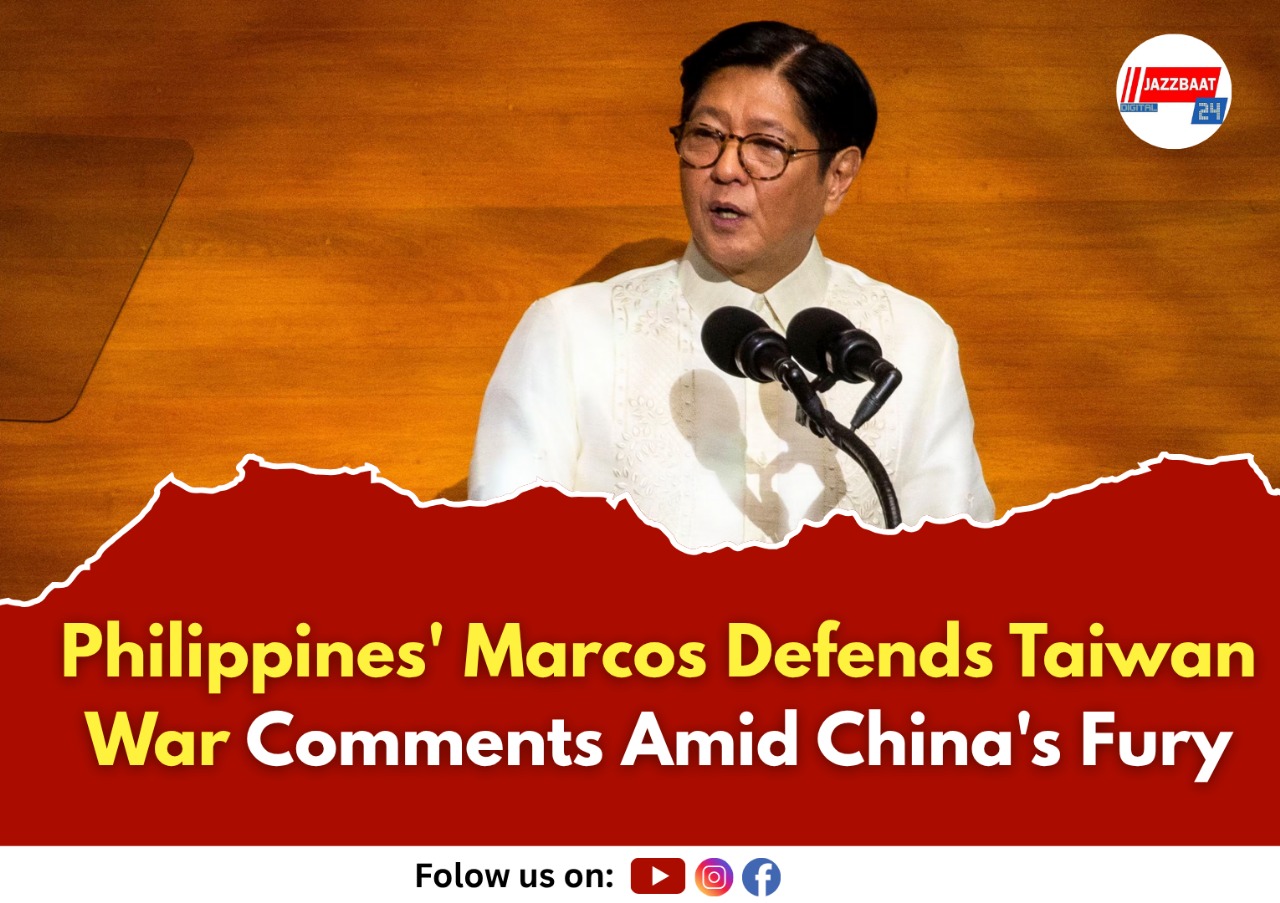
Philippine President Ferdinand Marcos Jr. stood by his controversial remarks about Taiwan on Monday, dismissing Beijing's accusations that he was "playing with fire" as a misinterpretation of his comments.
The diplomatic row erupted after Marcos told Indian news outlet Firstpost during his state visit to New Delhi that the Philippines would inevitably be "dragged kicking and screaming" into any conflict over Taiwan due to its geographic proximity to the self-ruled island.
"If there is a confrontation over Taiwan between China and the United States, there is no way that the Philippines can stay out of it simply because of our physical geographic location," Marcos said in the interview. "If there is an all-out war, then we will be drawn into it."
Beijing responded swiftly with anger, with China's foreign ministry lodging a formal diplomatic protest and accusing the Philippine leader of interfering in China's internal affairs and undermining regional stability.
Speaking at a press briefing in Manila on Monday, Marcos appeared puzzled by China's harsh reaction. "We are, I think for propaganda purposes, misinterpreted," he said. "I'm a little bit perplexed why it would be characterized as such, as playing with fire."
The president clarified that his concerns were primarily humanitarian, citing the need to evacuate over 100,000 Filipino workers living in Taiwan should conflict arise. "War over Taiwan will drag the Philippines kicking and screaming into the conflict. That is what I was trying to say," Marcos explained, emphasizing his desire to avoid confrontation while acknowledging the need for contingency planning.
The comments come against a backdrop of escalating tensions between Manila and Beijing over territorial disputes in the South China Sea. Just hours after Marcos' press conference, a Chinese coast guard vessel sprayed water cannons at a Philippine ship delivering supplies to Filipino fishermen near Scarborough Shoal, according to Philippine authorities.
China's coast guard defended the action as "professional, standardized, legitimate and legal," claiming the operation was necessary to expel Philippine vessels from what Beijing considers its territory. The Philippines, however, maintains its rights to the area under a 2016 international arbitration ruling that invalidated China's expansive maritime claims, a decision Beijing refuses to recognise.
Since taking office in 2022, Marcos has emerged as one of Asia's most vocal critics of China's maritime assertiveness. His administration has strengthened military cooperation with the United States and forged closer security partnerships with Japan, Australia, India, and European allies as a counterbalance to Beijing's growing influence.
The current diplomatic spat underscores the delicate position many Southeast Asian nations find themselves in as US-China tensions intensify. While the Philippines maintains it seeks to avoid conflict, Marcos has made clear that geography and existing commitments may not afford his country the luxury of neutrality.
As tensions simmer in both the Taiwan Strait and South China Sea, Marcos' frank assessment of his country's strategic predicament highlights the complex realities facing regional allies caught between competing superpowers in an increasingly volatile geopolitical landscape.